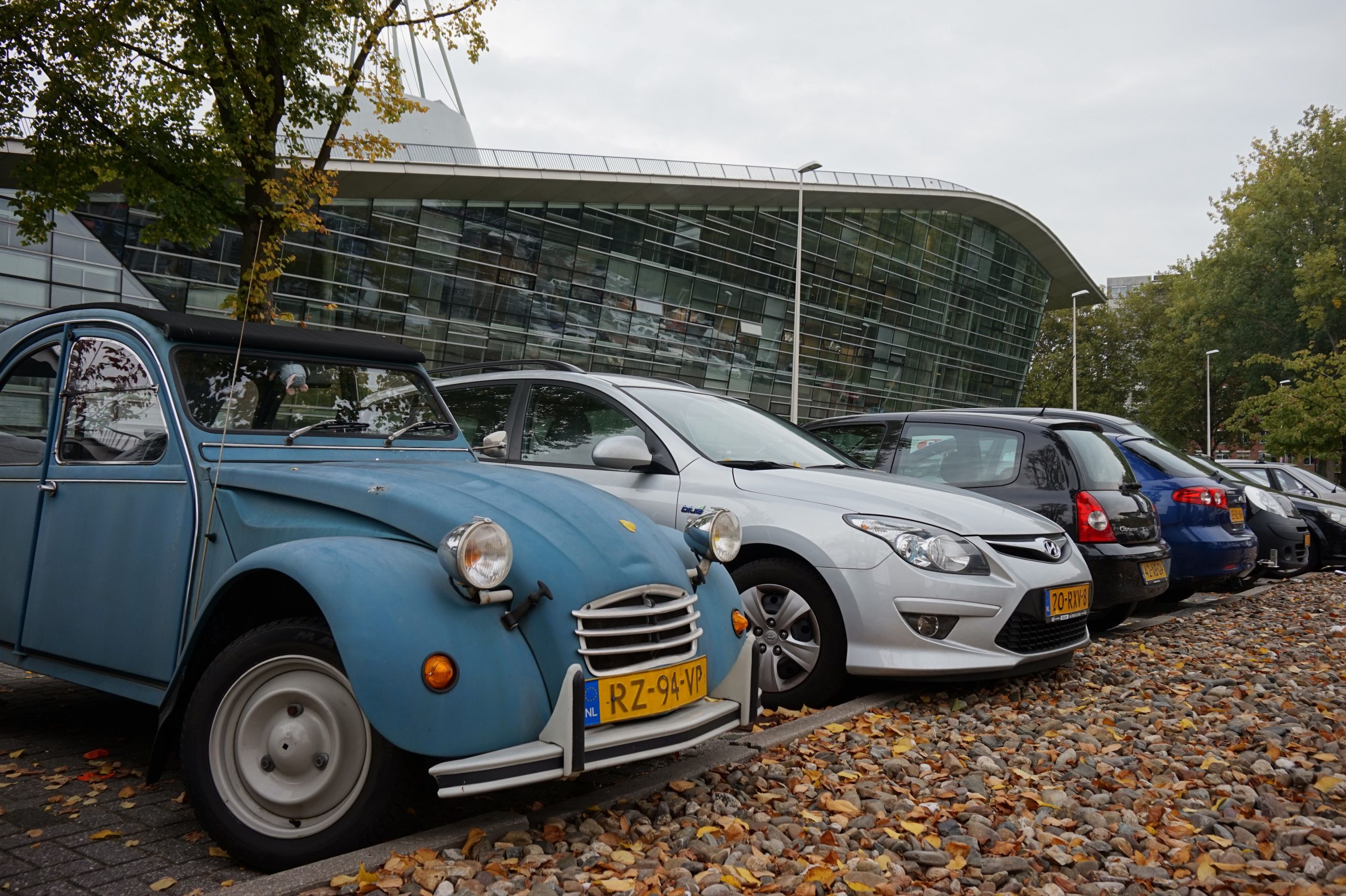A swiftly growing university. An ever increasing number of people who like driving their cars to campus. A finite number of parking spaces.
All of these elements could cause headaches for students and staff at TU Delft in the years to come. For his MSc thesis, Engineering, Systems and Services student Makis Gravanis examined the situation.
Whether or not there’s currently too much or too little parking on campus is open to debate. One recent study suggested that there is enough or perhaps even too much available. However, anyone who has ever fought to find a spot near the Faculty of Architecture and the Built Environment on a busy weekday might disagree.
During his research, Gravanis took a look at the parking lot near the library and others around campus on several busy weekdays last May. In addition to counting the number of cars and available spaces, he noticed at least a few instances of drivers becoming so frustrated that they illegally left their vehicles next to sidewalks or even on lawns. One of the biggest challenges Gravanis faced was the lack of hard data available on parking at TU Delft, which made estimating the campus’ future needs difficult.
Undaunted, Gravanis spoke with auto commuters to learn about their experiences and how much time they spend, on average, searching for parking. He also gathered information on how the campus is expected to grow over the next several years. He took these statistics and used a computer program called Biogeme to create predictions for 2017 and beyond.
“In 2017, you have a serious problem,” Gravanis said during his defence. “Parking demand will exceed parking supply. Five years from now, there will be almost 20% more parking demand.”
Smart parking apps, better enforcement of parking rules and offering students and staff incentives to use mass transportation to get to campus are all methods that could offset problems down the road. Increasing parking fees might be the most effective solution, especially since a large portion of TU Delft’s community would likely object to green spaces being converted into parking lots. Despite the potential for gridlock around campus, that hasn’t stopped some people from making fun of the situation.
“A couple of years ago, someone at the university had a very clever idea of how to deal with increasing parking demand,” Gravanis said. “Why not build a parking lot on top of the library? It was an April Fool’s Day joke.”
Gravanis, S., ‘Parking Demand Management at Delft University of Technology’ , Contributor: Annema, J.A. (mentor), Defence: October 27th, 2016



Comments are closed.